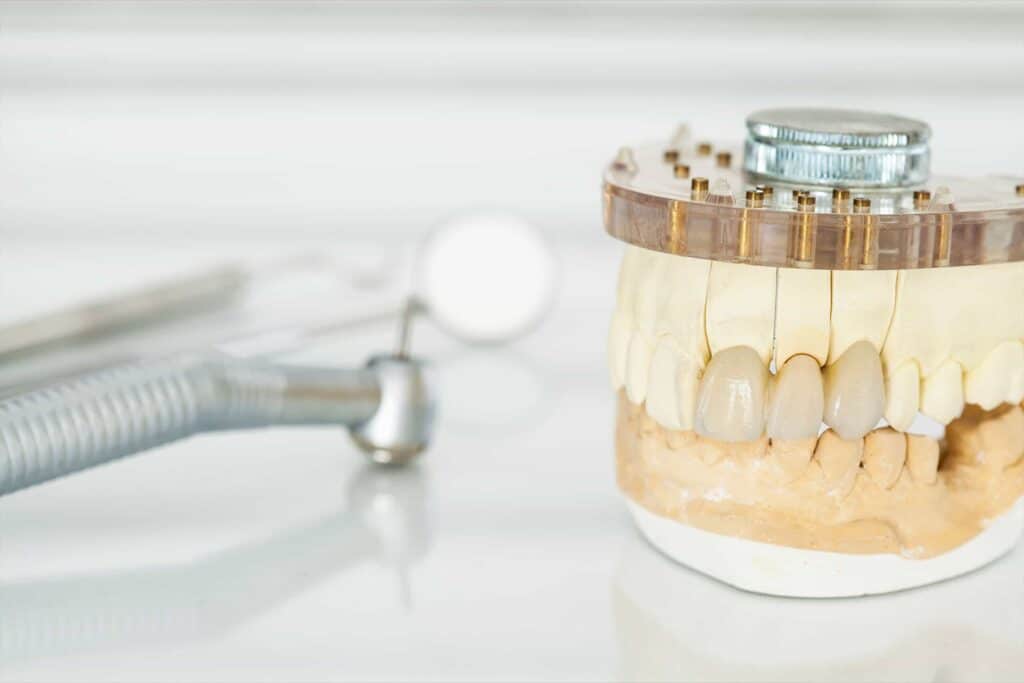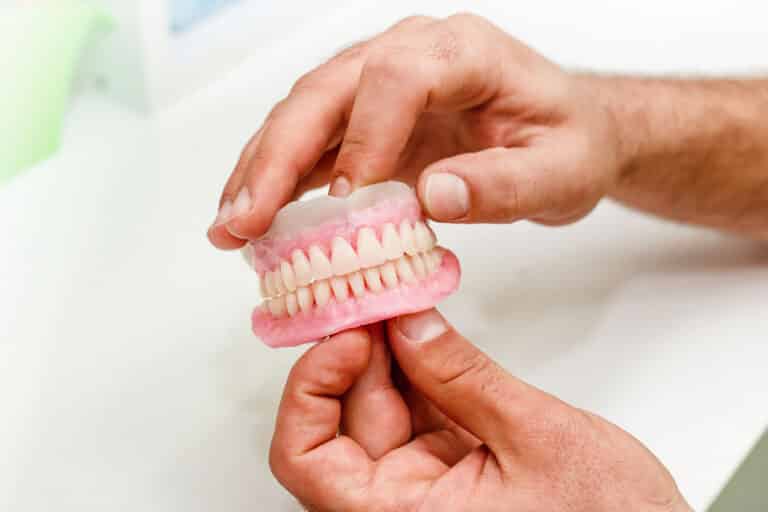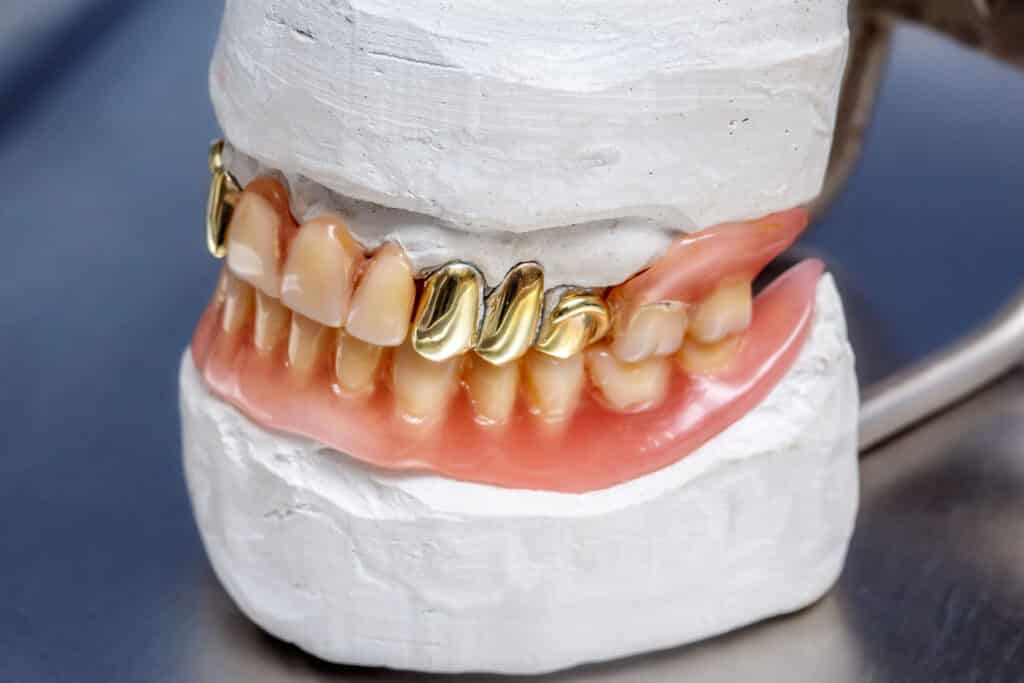Many people can attest to how braces feel in their mouths, but the truth is, it’s not the same for everyone. Some people feel a moderate amount of pain, while the pain from braces can be pretty minimal for others. But do braces really hurt? Much of it concerns personal tolerance for pain and the braces you choose to have on your teeth.
This article will discuss braces and the pain you can expect when putting them on or getting them tightened or adjusted.
Do They Really Hurt?
Braces can cause pain or discomfort to the person wearing them. It’s typical for people to feel pain or discomfort when first putting them on. Additionally you will feel pain and discomfort after regular tightening visits or when switching aligner trays depending if you’ve chosen traditional metal treatments or clear aligners. It’s normal to feel discomfort if a piece of the brace is rubbing or poking the inside of your mouth. Don’t hesitate to discuss any braces pain you notice with your dentist or orthodontist.
Should I Ever Have Sharp Pains?
Braces rarely bring sharp pain unless part of the brace has come loose and is causing friction inside the mouth. Because the teeth are moving, most people feel a dull ache from braces pain that could become worse when clenching the teeth. Feeling discomfort in the jaw is also commonplace.
Do Braces Hurt More as a Child or an Adult?
Adult braces should not hurt more than the ones used for children, as both scenarios involve shifting the teeth. Adjustments, tightening, and new aligner trays will often cause discomfort whether you’re an adult or a child. This discomfort often occurs after each visit or new tray and may last up to a few days in both situations.
When it comes to braces pain, it’s generally due to which orthodontic treatment you choose. Many patients prefer clear aligner trays, like Invisalign, over the metal ones. There are pros and cons to each type. Clear aligner technology has significantly improved over the years to the point where they can produce comparable results. Though clear aligners can cause discomfort, the braces pain from metal braces can be more significant. Especially after first having them on or getting your braces tightened, or if you were to get hit in the face. Any impact to the face can cut the lips due to the metal brackets and wires.
How Badly Do They Hurt?
No definitive explanation pertains to everyone regarding the braces pain. When applied to the teeth, they should not hurt, so you shouldn’t worry about the placement appointment. However, after the visit, you’ll feel mild soreness after the orthodontic wire engages in the brackets. The pain and discomfort can last as long as one week.
Most people will say that it’s a mild to moderate amount of discomfort. They report that the pain ranges anywhere from a 1 to a 5 on the pain scale. Anything more than that may need attention from your dentist. Also, your teeth should acclimate to them over time. The overall pain should be much less, even non-existent, between getting them tightened or new clear trays.
How Can I Stop The Pain From Braces?
If your braces hurt continuously, finding ways to relieve it is essential. Some people may need pain relief for a day or two after an ortho appointment. Others might require more than a week. The type of pain relief can vary from individuals, some might perform better than another.
Ice Packs
Many people respond well to an ice pack as cold temperatures can reduce inflammation and dull the pain associated with braces. You can hold the ice pack to the outside of your mouth for pain relief. This should help numb your teeth and gums. Take care to not place ice directly on your skin. Instead place a towel between the ice and the skin and take regular breaks, such as icing for 20 minutes then not icing for 10 minutes and repeat as necessary.
OTC Medications
It’s common for people to take over-the-counter medications, such as acetaminophen or ibuprofen. Taking pain relievers is completely fine to deal with braces pain, as long as you follow the directions for use. This should also help relieve both your teeth and gums and also help with overall pain relief, as well as reduce inflammation.
If you’re looking for a more local treatment, oral anesthetics like orajel can help with temporary relief but may not help with tooth pain. Whether you’re taking an OTC pain relief medication or oral anesthetics, please always remember to follow instructions and dosing.
Soft Foods
Ingesting soft foods after your braces have been applied or tightened can help alleviate any pain. When your braces hurt, try not to eat food that is crunchy or tough. If you have metal braces, you cannot eat anything chewy, like hard candy or gum.
Even though you don’t have to worry about wire straightening with Invisalign, you’ll still have to change trays. So be sure to give your mouth a break by eating softer foods in the days after your orthodontic treatment.
Orthodontic Wax
Most orthodontists send orthodontic wax home with their patients. It protects the lips, gums, and cheeks from the brackets of metal braces. Wax is a fantastic way to prevent additional mouth pain from rubbing braces. Orthodontic wax also helps protect your teeth and gums from your braces, helping to counter pain.
Warm Rinse
While cold washcloths and ice packs can work wonders, a warm salt water rinse can help heal any sores or cuts inside your mouth. A salt water rinse can also help to counter pain that you may be experiencing. The swish of the warm water is comforting, and patients see the positive effects of a warm saltwater rinse rather quickly.
What Food Can I Eat When I Have Braces To Avoid Pain?
When you first get braces, you’ll want to stick to soft foods that are easy to chew. As your treatment progresses, you can start to eat harder foods, but you’ll still want to avoid anything that’s sticky or crunchy. Just make sure to avoid any foods that are high in sugar or salt, as they can damage your braces.
Of course, it’s perfectly okay to treat yourself to ice cream once in a while!
What Food Can I Eat When I First Get Braces?
When you first get braces, you will have to avoid eating certain foods that can damage them. These foods include: hard candy, popcorn, and gum. You can still eat regular food, but be sure to avoid anything that is sticky or chewy.
When you first get braces, you will want to focus on eating soft foods that are easy to chew. Some good options include:
- Mashed Potatoes
- Ground Beef
- Scrambled Eggs
- Apple Sauce
- Soup
- Soft Breads
What Food Can I Eat During Treatment?
As your treatment progresses, you will be able to eat more types of food. However, you should still avoid anything that is sticky or chewy. Some good foods to eat include: mashed potatoes, baked chicken, and some cereals. Just be sure to avoid any type of candy or sugary drink.
As your treatment progresses, you will be able to add harder foods to your diet. However, you should still avoid anything that is sticky or crunchy. Some good foods to eat during the middle of your treatment include:
- Baked Chicken
- Roasted Vegetables
- Salad
- Oatmeal
Why Do I Have Jaw Pain After My Braces Were Removed?
If you have jaw pain when your braces are removed, you may have developed gum recession or jaw issues, such as TMJ disorders. If you are experiencing significant jaw pain and discomfort, headaches, noises when opening or closing, you may need to seek a TMJ dentist. Ask your orthodontist or dentist about possible jaw pain after treatment. People who have worn braces at any time are more prone to gum recession. So keeping an eye on what’s going on inside your mouth is essential.
Braces can be uncomfortable, but the pain is something that most people can handle for the benefit of a straighter smile. If you’re unsure if braces are right for you, you should talk to your dentist about the least painful options available!





